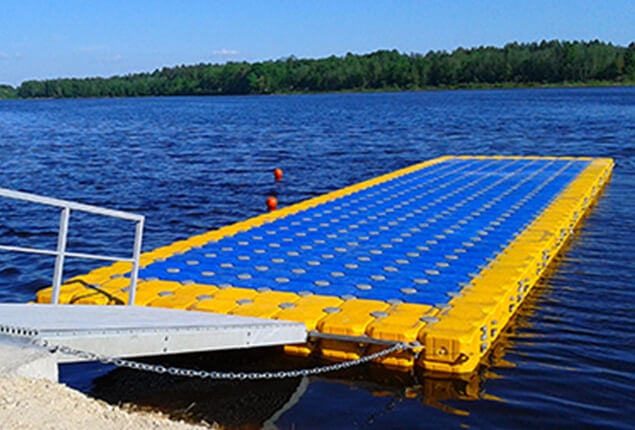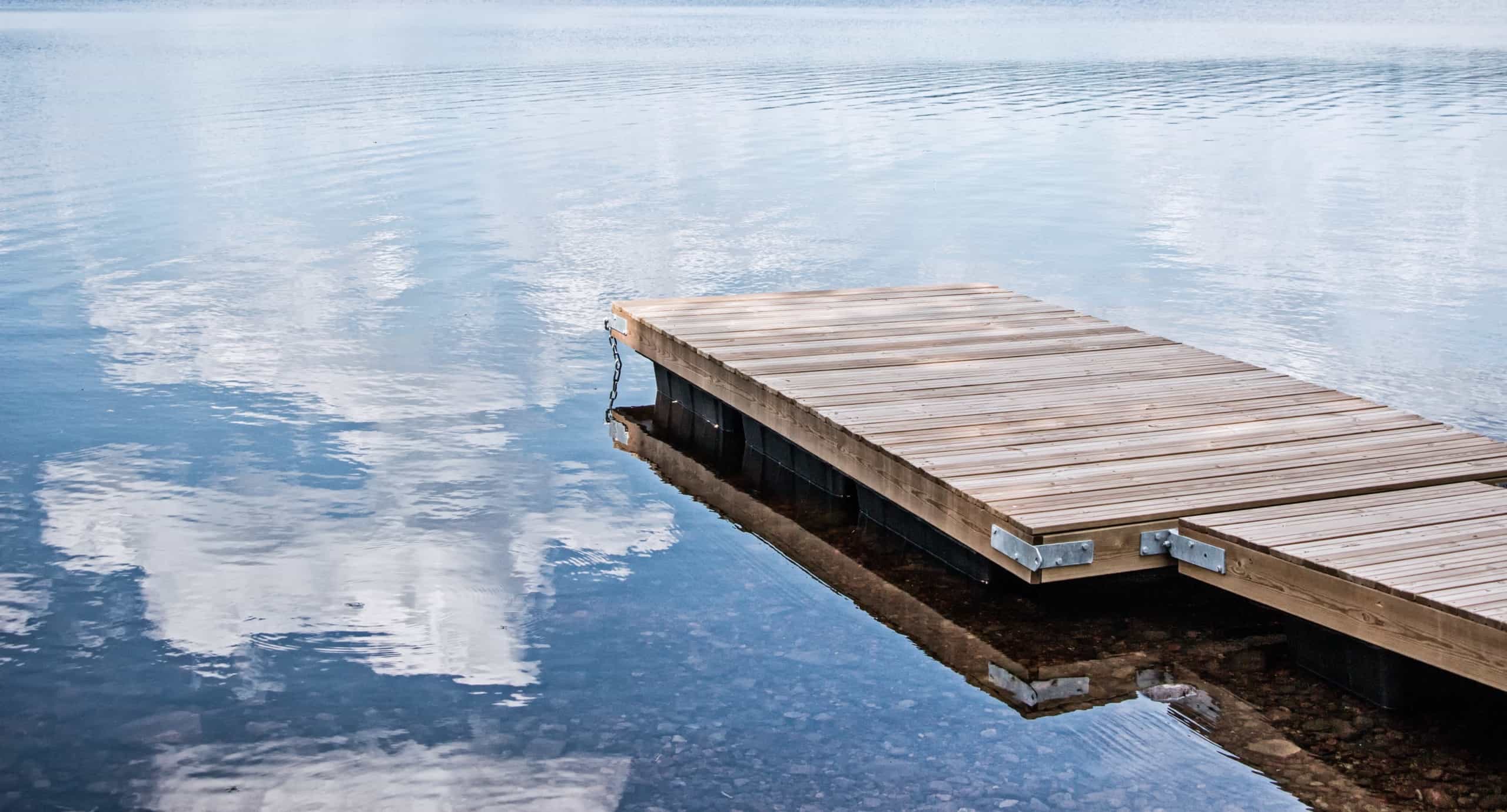Floating Docks: The Suitable Selection for Versatile Water Access
Floating docks present a compelling remedy for a range of water access requires, providing flexibility that goes beyond typical mooring choices. Their capacity to adjust to rising and falling water levels while making certain security and safety makes them particularly advantageous for both entertainment and commercial applications. Moreover, the modular nature of floating docks facilitates personalization, dealing with particular demands. However, the subtleties of installment and upkeep, alongside the variety of applications, call for a closer examination to fully value their potential benefits and effects for waterway access methods.
Benefits of Floating Docks
Floating docks deal many benefits that improve water accessibility for various applications. Their capability to fall and climb with changing water degrees makes them especially useful in settings with fluctuating trends or seasonal variants. This flexibility ensures that vessels can conveniently tie without problem for the water's deepness, offering a trustworthy platform for entertainment, commercial, and industrial usages.
Furthermore, floating docks are usually constructed from long lasting products that stand up to corrosion, making them suitable for long-lasting use in marine environments. Their installation is typically much less invasive than standard set docks, lowering the environmental influence and promoting quicker release (floating dock builder). This versatility permits for easier moving or reconfiguration according to user demands or ecological changes
Safety and security is one more vital benefit; floating docks can provide stable access for people getting off or boarding from watercrafts and lower the threat of crashes connected with unsteady surfaces. Furthermore, they can be made to fit a variety of accessories, such as cleats and fenders, improving capability. In general, floating docks represent a reliable solution for improving water gain access to throughout varied fields while advertising safety and ecological sustainability.

Kinds of Floating Docks
Different kinds of floating docks provide to different needs and settings, each developed with certain attributes to enhance functionality. One of the most usual types consist of modular docks, which include interlacing areas that permit simple modification and growth. These docks are optimal for recreational usage, as they can be tailored to fit different boat dimensions and water conditions.
One more preferred option is the fixed floating dock, which stays secured in location however floats with transforming water degrees. floating docks. This type is especially suited for areas with marginal tidal fluctuations, providing stable gain access to for angling or swimming. In addition, there are drive-on docks, which include a sloped design that permits watercrafts to quickly drive on and off, making them suitable for individual boat and smaller sized vessels
For commercial applications, durable floating docks are readily available, constructed from enhanced products to withstand considerable lots and harsh marine environments. Lastly, eco-friendly floating docks utilize sustainable materials and layouts to minimize ecological impact, frequently including functions like plant life to support neighborhood wild animals. Comprehending the different kinds of floating docks guarantees that users can choose the most appropriate solution for their details needs.
Installation Refine Introduction
A successful installation of floating docks requires cautious planning and focus to detail to make sure optimal efficiency and security. The initial action involves analyzing the website conditions, including water depth, existing, and prospective barriers. This evaluation notifies the selection of the proper dock materials and style tailored to the certain setting.
Next, getting needed authorizations is essential, as numerous territories have regulations relating to construction on water bodies. When consents are protected, the installation can proceed. Begin by preparing the structure, which might involve anchoring systems or pilings tailored to the dock type and neighborhood conditions.
Following the foundation configuration, construct the dock sections according to producer specs. Make certain that all components are safely secured and straightened to endure environmental stress and anxieties. Placement the dock in the designated area, ensuring it is level and stable.

Maintenance Tips and Finest Practices
After the installment procedure is full, ongoing maintenance plays a crucial function in making certain the longevity and functionality of floating docks. Regular inspections ought to be conducted to identify any kind of signs of damage, degeneration, or wear - dock company. Look for any loosened fittings, splits, or separation the original source in the dock sections, as these can jeopardize architectural stability
Cleaning the dock is essential to get rid of particles, algae, and other build-up that can influence its appearance and safety and security. Use a gentle stress laundry periodically to keep cleanliness without creating damages to the surface. In addition, using a safety sealer every couple of years can aid improve longevity and withstand ecological wear.
Take note of the mooring lines and supports, guaranteeing they are protected and cost-free from deterioration. Replace any abject components promptly to avoid hazards. Seasonal changes might also be essential; throughout extreme weather, reinforcing the dock or rearranging can protect against damage.
Applications for Floating Docks
Floating docks offer a plethora of applications, satisfying both business and entertainment needs. In recreational settings, they offer smooth access to rivers for tasks such as boating, angling, and swimming. Their adjustable nature permits installment in differing water levels, making sure secure and risk-free gain access to no matter tidal fluctuations.
Commercially, floating docks are essential for marinas and waterfront businesses. They facilitate the docking of vessels, go to the website enabling effective discharging and loading of products. Their modular style permits simple growth or reconfiguration to accommodate transforming business needs, making them ideal for boat leasings, tour operations, or angling charters.
Furthermore, floating docks are made use of in ecological applications such as water research study and habitat reconstruction. They can act as systems for scientific studies, keeping an eye on water quality, or conducting wild animals surveys without disturbing delicate ecosystems.
In commercial contexts, floating docks are employed in construction tasks, giving accessibility to hard-to-reach locations for devices and personnel. Their convenience, durability, and marginal influence on the environment make them an optimum choice for a wide array of applications, improving both functionality and access in different water-based environments.
Final Thought
In conclusion, floating docks represent an optimal solution for varied water gain access to requires, owing to their adaptability, toughness, and modular layout. These structures promote risk-free mooring for numerous applications while reducing ecological impact throughout setup. The decreased upkeep requirements additionally boost their functionality. Floating docks offer as a valuable possession for recreational, industrial, and ecological tasks, guaranteeing trustworthy accessibility to waterways and promoting sustainable methods in marine environments.
Floating docks present a compelling service for a range of water accessibility requires, supplying versatility that goes beyond typical mooring alternatives.Floating docks deal numerous benefits that enhance water gain access to for numerous applications. Overall, floating docks stand for an efficient option for browse around here improving water access throughout diverse industries while promoting safety and ecological sustainability.
An additional popular option is the fixed floating dock, which continues to be secured in area however floats with transforming water degrees.In final thought, floating docks represent an optimum option for diverse water access requires, owing to their versatility, toughness, and modular style.